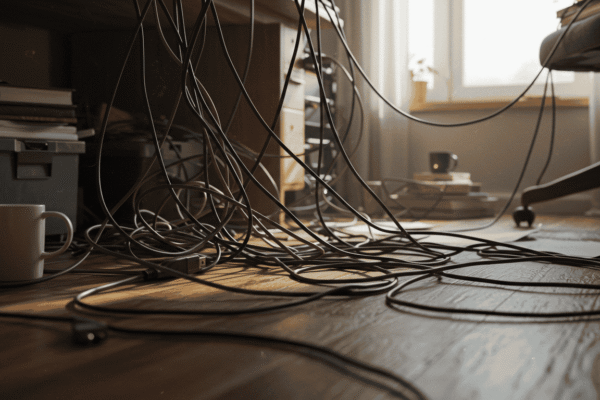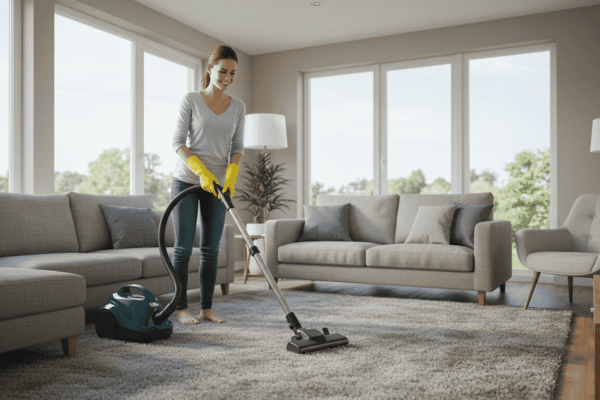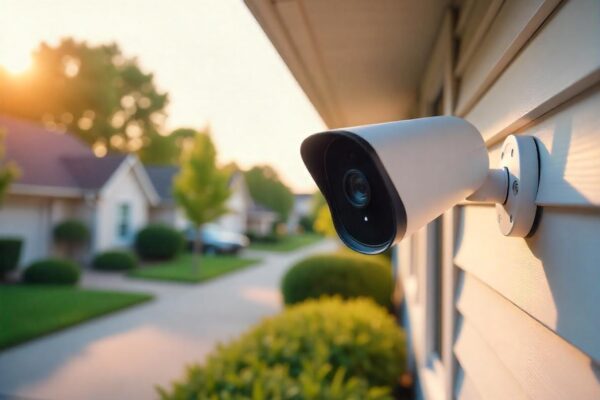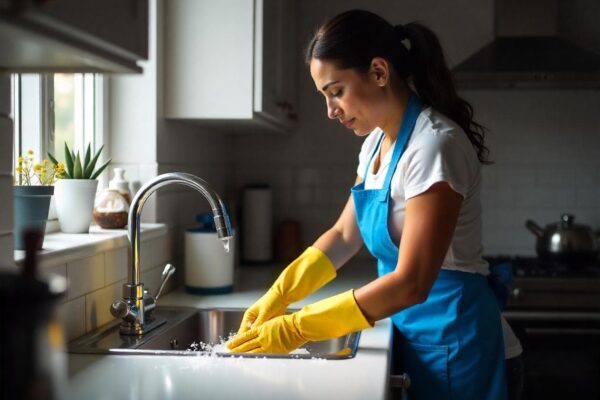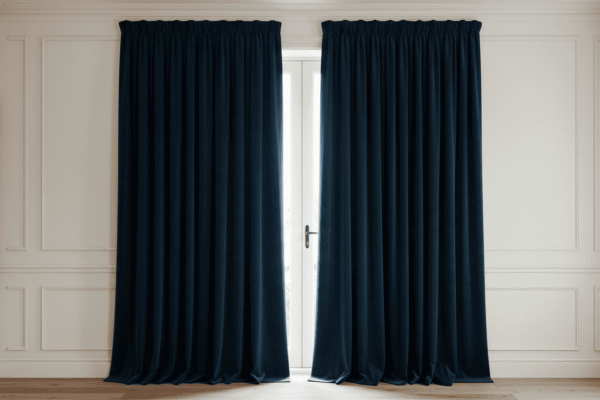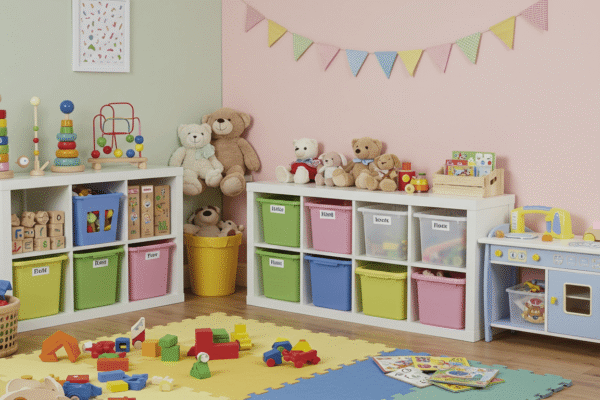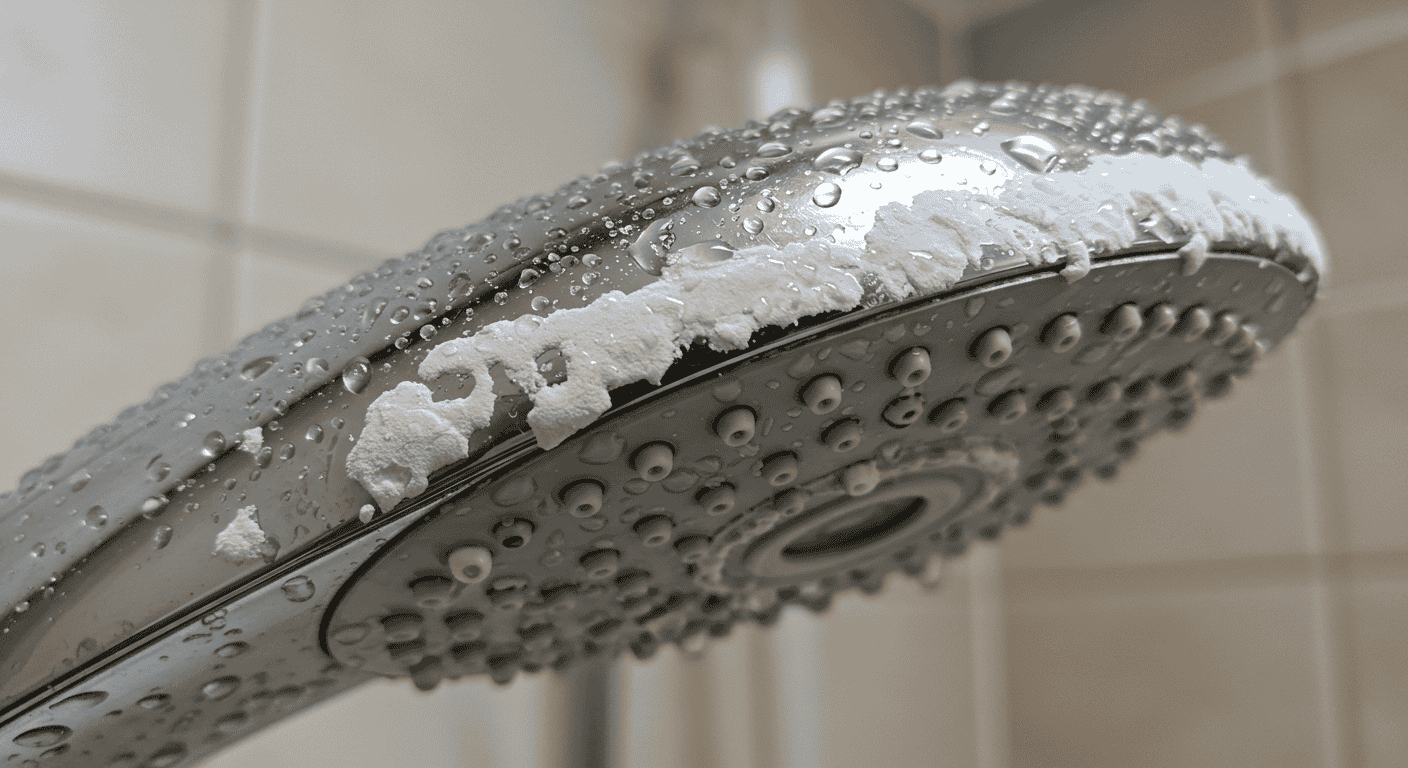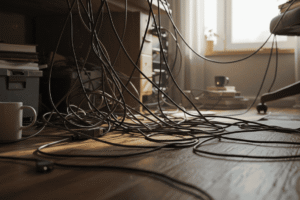Hard water stains are one of those stubborn cleaning challenges that can make even the shiniest surfaces look dull and neglected. Caused by mineral deposits like calcium and magnesium, these cloudy marks often appear on glass shower doors, faucets, tiles, and even your kitchen sink. The good news? You don’t need harsh chemicals or expensive treatments to get rid of them. In this guide, you’ll learn easy, effective, and eco-friendly methods to remove hard water stains, prevent them from coming back, and keep your home sparkling with minimal effort.
Understanding Hard Water Stains: What Are They and Why Do They Form?
If you’ve ever noticed stubborn white marks on your faucets, shower doors, or kitchen surfaces, you’ve likely encountered hard water stains. These stains result from minerals dissolved in water, which leave behind deposits as the water evaporates. Understanding what causes these stains and how they affect your home is the first step toward effectively managing and preventing them.
What Causes Hard Water Stains?
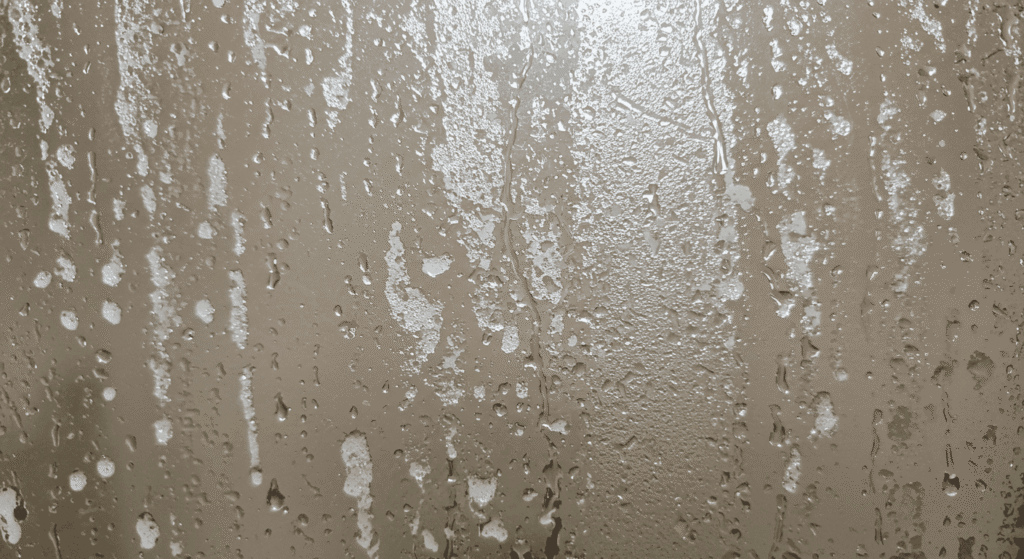
The primary culprits behind hard water stains are minerals like calcium and magnesium. When water flows through soil and rocks, it picks up these minerals, creating what is commonly known as hard water. As hard water evaporates from surfaces, it leaves behind these mineral deposits, which accumulate over time and form visible stains. Unlike soap scum or dirt, these deposits are mineral-based and can be stubborn to remove without the right techniques.
How Hard Water Affects Your Home
Over time, the buildup of calcium and magnesium minerals can negatively impact various parts of your home. On faucets and fixtures, it creates a rough, chalky layer that dulls the finish and can even clog water flow. Glass shower doors develop cloudy, etched spots that reduce their clarity and shine. Bathroom tiles may show persistent white residue, making them look dirty despite regular cleaning. Kitchen appliances that use water, such as dishwashers and kettles, can also suffer from mineral buildup, which may reduce their efficiency and lifespan.
Common Signs of Hard Water Build-Up
Recognizing hard water build-up is key to timely cleaning and maintenance. The most obvious signs include white or off-white spots and streaks on sinks, faucets, and glass surfaces. These stains often have a powdery or crusty texture that doesn’t wash away easily. Surfaces may also appear dull or cloudy, even after routine cleaning. In some cases, you might notice a rough or gritty feel when you touch the stained areas. If left unchecked, these mineral deposits can become thicker and more difficult to remove, leading to long-term damage.
Identifying Hard Water Stains: How to Tell If It’s Hard Water or Something Else
Knowing how to differentiate hard water stains from other common household stains is essential for choosing the right cleaning approach. Many stains look similar at first glance but require different methods to remove effectively. This section will help you identify hard water issues quickly and avoid wasting time on ineffective treatments.
Hard Water vs. Soap Scum: What’s the Difference?
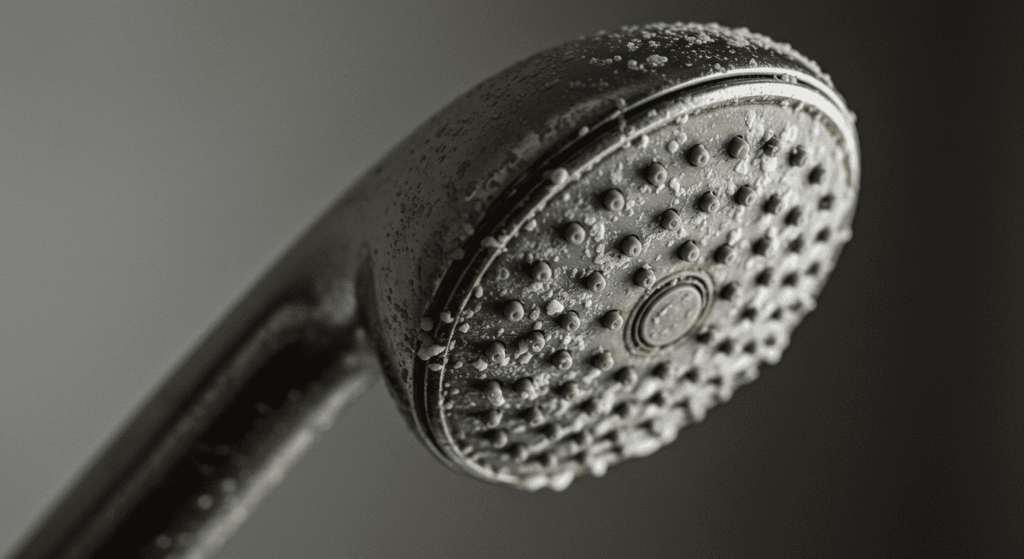
While hard water stains and soap scum are often confused, they have distinct characteristics. Hard water stains are caused by mineral deposits left behind after water evaporates, typically appearing as white or off-white crusty marks. On the other hand, soap scum results from a reaction between soap and minerals in the water, creating a slimy, grayish residue. Unlike hard water stains, soap scum can often be removed more easily with soap or detergent-based cleaners.
Quick At-Home Tests for Hard Water Presence
To confirm whether you’re dealing with hard water, try a simple test using common household items. Fill a clear bottle with tap water and add a few drops of liquid soap. Shake the bottle vigorously. If the water becomes cloudy and forms bubbles quickly, your water is likely soft. However, if the water remains clear and bubbles are minimal, it indicates the presence of minerals—signifying hard water. This test helps you understand the root cause of stubborn stains in your home.
Visual Guide: Common Locations of Hard Water Stains
Hard water stains tend to appear in specific areas where water frequently evaporates. Faucets, bathroom tiles, shower doors, and kitchen sinks are common hotspots. Recognizing these typical locations can help you spot early signs and take preventive action before the stains become difficult to remove.
| Feature | Hard Water Stains | Soap Scum | Mold | Rust |
|---|---|---|---|---|
| Color | White/Off-white | White/Gray | Black/Green | Orange/Red |
| Texture | Crusty, powdery | Slimy | Fuzzy | Flaky |
| Location | Faucets, tiles | Bathtubs, sinks | Damp areas | Metal surfaces |
Natural and Eco-Friendly Ways to Remove Hard Water Stains
When it comes to tackling hard water stains, natural remedies offer effective, budget-friendly, and environmentally safe options. These solutions use common household ingredients that can dissolve mineral deposits without harsh chemicals, making them ideal for regular home use.
Using Vinegar: How and Why It Works
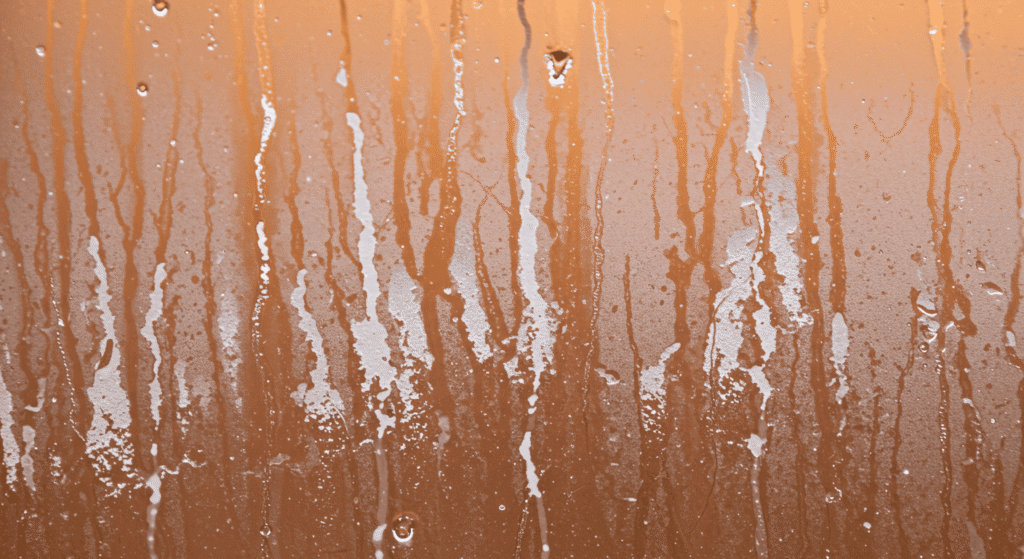
Vinegar is a powerful natural cleaner because of its high acidity, which helps dissolve calcium and magnesium deposits—the main components of hard water stains. Its mild acid gently breaks down mineral buildup, making it easier to wipe away without damaging most surfaces. Simply soaking a cloth in vinegar and applying it to stained areas can make a noticeable difference.
Baking Soda Magic: Gentle Scrubbing for Tough Stains
Baking soda is another excellent option due to its mild abrasive texture. It can be combined with water to form a paste that gently scrubs away stubborn hard water stains without scratching delicate surfaces like glass or chrome. Its natural deodorizing properties are an added benefit when cleaning sinks or drains.
Lemon Juice: Natural Acid for Stain Fighting
Like vinegar, lemon juice contains natural acids that effectively combat mineral deposits. Its pleasant scent and natural bleaching properties make it a favorite for cleaning hard water stains in kitchens and bathrooms. However, due to its acidity, lemon juice should be used carefully on sensitive surfaces to avoid etching.
Step-by-Step Cleaning Process with Natural Ingredients
- Identify the stained area and clear it of any debris.
- Apply vinegar, baking soda paste, or lemon juice directly to the stain.
- Let the solution sit for 10–15 minutes to allow the acid to break down minerals.
- Gently scrub with a soft cloth or sponge to lift the deposits.
- Rinse the area thoroughly with water and dry with a clean towel.
- Repeat if necessary for stubborn stains.
| Cleaner | Effectiveness | Surface Safety | Cost | Ease of Use |
|---|---|---|---|---|
| Vinegar | High | Safe on most surfaces | Low | Easy |
| Baking Soda | Medium | Very safe | Low | Medium |
| Lemon Juice | Medium | Safe but acidic | Low | Easy |
Tools and Techniques: What You’ll Need for Effective Hard Water Stain Removal
Removing hard water stains efficiently requires the right combination of tools and techniques tailored to the surface you’re cleaning. Using inappropriate tools can damage finishes or make stains worse, so knowing what to use—and what to avoid—is essential for protecting your home.
Best Cleaning Tools for Different Surfaces
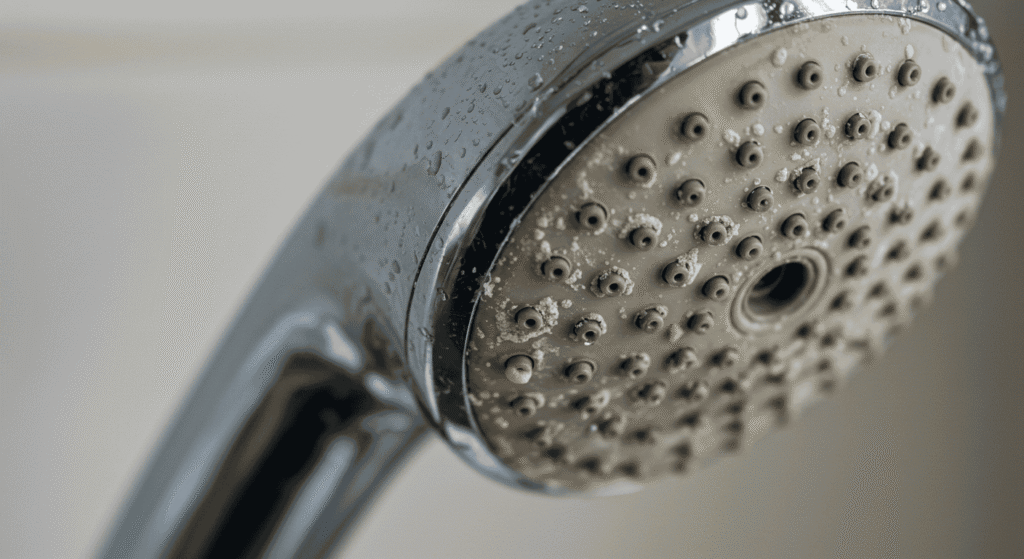
Different surfaces react uniquely to cleaning methods. For delicate materials like glass or chrome, softer tools prevent scratches, while more durable surfaces such as tiles can handle gentle abrasives. Selecting the appropriate tool ensures you remove mineral deposits effectively without causing damage.
How to Use Microfiber Cloths and Brushes
Microfiber cloths are excellent for wiping away dissolved mineral deposits because they trap particles without scratching. They work best when combined with natural cleaners like vinegar or lemon juice. Soft brushes help loosen hard water stains in grout or textured surfaces, allowing the cleaning agents to penetrate deeper. Always use gentle, circular motions rather than harsh scrubbing to protect surfaces.
When to Use Scrapers or Pads (and What to Avoid)
Scrapers and abrasive pads can be useful for particularly stubborn hard water build-up, but caution is necessary. Avoid metal scrapers or steel wool on sensitive surfaces like glass and polished faucets, as they can cause permanent damage. Instead, opt for plastic scrapers or non-scratch pads specifically designed for cleaning delicate areas.
| Surface | Recommended Tool | Tools to Avoid |
|---|---|---|
| Glass/Shower Door | Microfiber cloth, vinegar | Abrasive scrubbers |
| Faucets | Soft brush, cloth | Steel wool |
| Tiles | Soft brush, baking soda paste | Metal scrapers |
Step-by-Step Guide to Removing Hard Water Stains from Different Areas
Different parts of your home require slightly different approaches to effectively remove hard water stains without causing damage. Below are targeted cleaning steps for common trouble spots where mineral deposits tend to accumulate.
Cleaning Faucets and Fixtures
To remove hard water stains from faucets and fixtures, start by soaking a soft cloth in vinegar or a baking soda paste and wrapping it around the affected area. Let it sit for 15–20 minutes to loosen the mineral buildup. Afterward, gently scrub with a soft brush or cloth to lift the deposits. Rinse thoroughly with water and dry with a clean towel to prevent new stains from forming.
Removing Stains from Shower Doors and Glass
For glass shower doors, spray a vinegar solution directly on the stains and allow it to sit for 10–15 minutes. Use a microfiber cloth to wipe away softened deposits. For persistent stains, repeat the process or apply a baking soda paste for gentle scrubbing. Regular wiping after each shower can help minimize buildup over time.
Tackling Hard Water on Bathroom Tiles and Grout
Bathroom tiles and grout can trap mineral deposits deeply. Apply a baking soda paste to stained grout lines and let it rest for 15 minutes. Use a soft brush to scrub gently along the grout, then rinse thoroughly. For tile surfaces, vinegar spray combined with a microfiber cloth works well to dissolve surface stains.
Kitchen Sink and Appliances Care
Kitchen sinks and appliances exposed to water often show hard water build-up. Clean sinks weekly by applying lemon juice or vinegar, letting it sit for 10 minutes before scrubbing with a cloth or sponge. Regular cleaning prevents stubborn stains and keeps appliances functioning efficiently.
| Area | Frequency | Recommended Cleaner | Tools Needed |
|---|---|---|---|
| Faucets | Weekly | Vinegar or baking soda | Soft brush, cloth |
| Shower Doors | Twice a week | Vinegar solution | Microfiber cloth |
| Tiles & Grout | Monthly | Baking soda paste | Soft brush |
| Kitchen Sink | Weekly | Lemon juice or vinegar | Cloth, sponge |
Preventing Hard Water Stains: Simple Tips to Keep Your Home Spotless
Prevention is often easier than tackling tough hard water stains after they form. By adopting a few simple strategies and daily habits, you can significantly reduce mineral buildup and keep your home looking fresh and clean.
How to Soften Hard Water at Home Without Expensive Systems
While installing a professional water softener is one solution, there are more affordable ways to reduce the effects of hard water. Using natural additives like washing soda in your laundry or regularly cleaning faucets and appliances with vinegar helps limit mineral accumulation. Additionally, filtering your water with affordable in-line filters can reduce the mineral content before it hits your surfaces.
Daily Habits That Minimize Stain Build-Up
Small daily actions can make a big difference. Wiping down faucets, shower doors, and sinks after use removes water droplets before minerals can settle and form stains. Avoid letting water sit on surfaces for extended periods. Maintaining good ventilation in bathrooms also helps surfaces dry faster, reducing the chance for stains to develop.
Quick Wipes and Regular Maintenance Tips
Incorporate quick cleaning sessions into your routine, such as weekly deep cleaning with natural solutions like vinegar or baking soda paste. This prevents mineral deposits from hardening and becoming difficult to remove. Regular maintenance not only keeps surfaces spotless but also prolongs the life of your fixtures and appliances.
| Prevention Tip | How It Helps | Frequency |
|---|---|---|
| Wiping surfaces daily | Prevents mineral build-up | Daily |
| Using water softening | Reduces mineral content | Ongoing |
| Regular deep cleaning | Removes early stains | Weekly or Monthly |
When Hard Water Stains Won’t Budge: Advanced Methods to Try
Sometimes, even with regular cleaning, hard water stains can become stubborn and resistant to natural remedies. When this happens, it’s time to explore advanced methods to effectively break down those tough mineral deposits.
Using Paste Cleaners and Homemade Scrubs
One effective approach is creating paste cleaners using household ingredients like baking soda combined with a small amount of water or vinegar. These pastes offer gentle abrasiveness to scrub away thick hard water build-up without damaging surfaces. Applying the paste and letting it sit for 15-20 minutes before scrubbing with a soft brush often helps lift persistent stains. You can also add a few drops of lemon juice for extra stain-fighting power.
Safe Acid-Based Solutions: What You Should Know
Stronger acid-based cleaners can dissolve mineral deposits more quickly, but they require careful handling. When choosing acid-based solutions, always look for those safe for your surface type, and avoid harsh chemicals that can etch glass or corrode metal. Using these solutions sparingly and following manufacturer instructions (if applicable) ensures effective cleaning without damage.
When to Call in Professional Help
If your hard water stains have built up extensively over time or cover large areas, professional cleaning services might be the best option. Experts have specialized tools and stronger but safe cleaning agents that can restore your fixtures and surfaces without risk. Calling a professional can save you time and prevent accidental damage caused by improper cleaning attempts.
Safety Tips for Handling Stronger Cleaners
- Always wear gloves and protective eyewear when using acid-based or stronger cleaners.
- Ensure the area is well-ventilated to avoid inhaling fumes.
- Test any cleaner on a small, hidden area first to check for surface reaction.
- Never mix different cleaning chemicals as this can create dangerous reactions.
Frequently Asked Questions About Hard Water Stains
Many homeowners have questions about hard water stains and their impact. Here are answers to some of the most common concerns to help you better understand and manage this issue.
Can Hard Water Damage My Plumbing?
Yes, hard water can cause damage to your plumbing system over time. The buildup of calcium and magnesium deposits can clog pipes, reduce water flow, and decrease the efficiency of appliances like water heaters and dishwashers. Regular maintenance and cleaning can help minimize this risk.
Are Hard Water Stains Harmful to Health?
Hard water stains themselves are not harmful to health, as they are simply mineral deposits. However, the buildup can create rough surfaces where bacteria might accumulate if not cleaned regularly. Maintaining cleanliness ensures your home stays both sparkling and sanitary.
How Often Should I Clean Hard Water Stains?
The frequency of cleaning depends on your water’s hardness and how quickly stains form. For most homes with moderate hard water, weekly to biweekly cleaning of frequently used areas like faucets and shower doors is recommended. Tiles and grout can be cleaned monthly to prevent buildup.
Does Hard Water Affect Cleaning Products’ Efficiency?
Yes, hard water can reduce the effectiveness of many cleaning products, especially soaps and detergents. The minerals react with soap to form scum, which can leave surfaces less clean and require more effort to remove stains. Using natural acids like vinegar or specially formulated cleaners can improve results.
Effective Strategies for Removing Hard Water Stains
Hard water stains can be stubborn, but with the right knowledge and tools, they don’t have to ruin your home’s appearance. By understanding what causes these mineral deposits and using natural, eco-friendly cleaning methods, you can easily restore your fixtures, glass, and tiles to their original shine. Regular maintenance and prevention are key to keeping hard water stains at bay—helping you enjoy a cleaner, more beautiful home every day.

